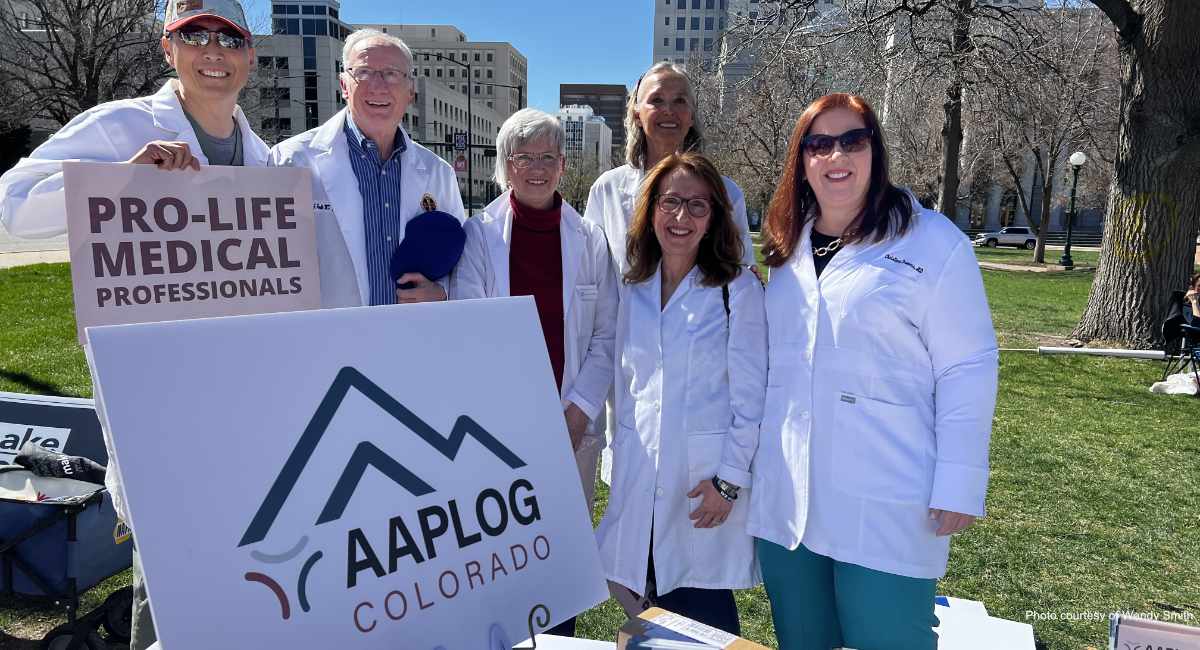Disclaimer: The opinions expressed in this guest post are solely those of the guest author.
In November, 2023, Ohio incorporated ‘abortion rights’ into their state’s constitution. News outlets across the nation, such as CNN, projected “… continuing a winning trend for abortion rights advocates since the overturning of Roe v. Wade.” The Associated Press noted, “It was the seventh straight victory in statewide votes for supporters of abortion access nationally since the U.S. Supreme Court overturned constitution protections.”
Colorado has been referred to as the leader in abortion, ignominiously so.
RHEA removed all abortion restrictions, including parental involvement for minors
In 2022, Colorado passed the ‘Reproductive Health Equity Act’ (RHEA). With the passing of the Act, Colorado became one of seven states at that time without any restrictions on abortion. The act did the following: codified the “right” to abortion at any stage of the pregnancy up to birth, removed any rights of the embryo or fetus under Colorado law; prohibits local government entities from independently implementing their own restrictions; prohibits parents from preventing their minor from obtaining an abortion.
About the only thing RHEA did not permit is the use of taxpayer/public funding for abortion.
Katherine Riley, the policy director for the Colorado Organization for Latina Opportunity and Reproductive Rights (COLOR), at the time noted, “RHEA is about protecting our fundamental right to choose. Parental notification is a barrier to access, but not a barrier to choice because even if a parent is notified of their child’s choice to pursue an abortion in Colorado, they legally cannot prevent the abortion from happening.” (emphasis added)
Since Roe v. Wade was overturned, pro-abortion leaders in Colorado have designated January 22nd as “Roe versus Wade” anniversary day.
Pro-abortion advocates are not still not satisfied.
More extreme bills attack efforts to protect innocent life
Last year, 2023, pro-abortion Colorado lawmakers passed several bills to protect doctors who perform abortions on women/minors traveling from out of state and placed restrictions on the advertising of pro-life organizations. They also attempted to define prescribing Abortion Pill Rescue (APR) as “professional misconduct” which could result in loss of professional licensure. It is currently being challenged in the courts.
As if this were not enough, this year, the radical abortion advocates are seeking to enshrine Colorado abortion laws into the state’s constitution with the Right to Abortion, Initiative 89. If passed, not only would this amendment cement abortion into the constitution, but it would also “prohibit the state and local governments from denying, impeding, or discriminating against the exercise of that right, allowing abortion to be a covered service under health insurance plans for Colorado state and local government employees and for enrollees in state and local governmental insurance programs.” In addition, not only would this amendment force taxpayer funding, but it would also cement a lack of safety measures that would help to protect women: abortion at any time, for any reason, without ensuring providers are properly credentialed, without oversight or regulation. All this in the name of “womens’ health” (a tragic oxymoron).
A seismic shift
However, the earth beneath Colorado is rumbling, as there is about to be a seismic shift. Since 2022, Pro-Life Colorado Coalition has united over 50 anti-abortion groups to form a united front, to speak with one voice in support of the unborn. On April 12, 2024, Colorado held its first Colorado March for Life, where thousands of people rallied to support the humanity, value, and dignity of the unborn.
There was also another monumental event on April 12. Following the March for Life, the American Association of Pro-life OB-GYNs (AAPLOG) launched its first in the nation state chapter, AAPLOG Colorado. The American Association of Pro-life OB-GYNs Colorado chapter is working to bring life affirming policies and support for women to the state. We will be a resource for legislators, medical professionals, students and our communities.
The science affirming life at conception is on our side. We have made so many advances in technology and in the knowledge of cellular biology. Medical professionals are the most equipped to bring this knowledge to the forefront in defense of life. Together, with the support of AAPLOG, the Colorado chapter will bring together a network of pro-life health care providers (MDs, NPs, PAs, nurses, pharmacists, medical/nursing students), equipped with the most accurate, evidence-based rationale to support life in the womb in an effort to counter the radical abortion movement — to turn this state from a culture of death to a culture celebrating life.
We invite any pro-life health care professionals in Colorado to join our chapter. We encourage other states to follow suit. Our hope is that our efforts in Colorado and the seismic shift we are experiencing will create aftershocks across this great nation.
For more information, contact: colorado@aaplog.org
Author Bio: Wendy J. Smith, ACNP-retired, is a member of the AAPLOG CO Executive Team and is a Colson Fellow. (Featured photo – From left: unknown, Tom Perille, MD, Wendy Smith ACNP-retired, Front on right is Christina Francis, OB/GYN and CEO of AAPLOG, behind her is Catherine Wheeler, OB/GYN. Tom, Wendy, and Catherine make up the leadership team who launched the chapter in collaboration with AAPLOG.)







